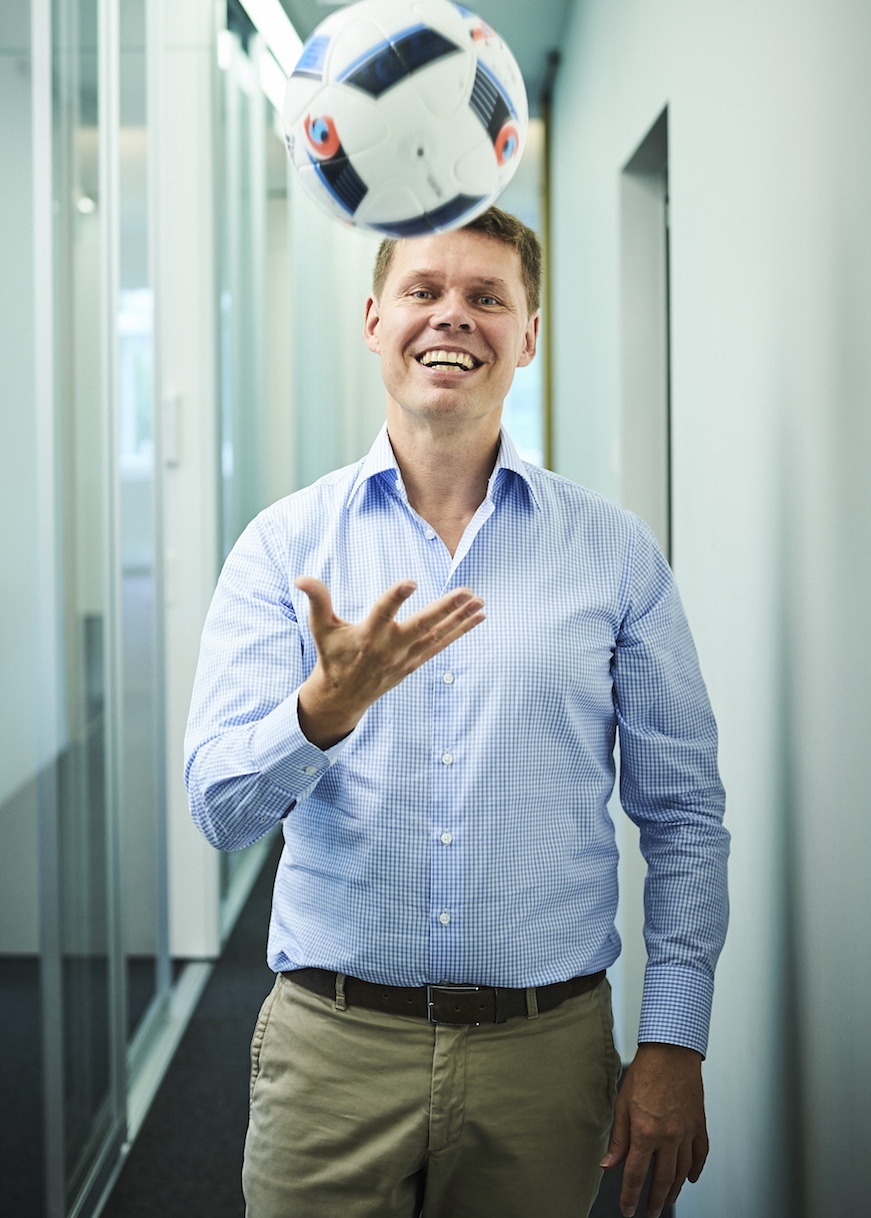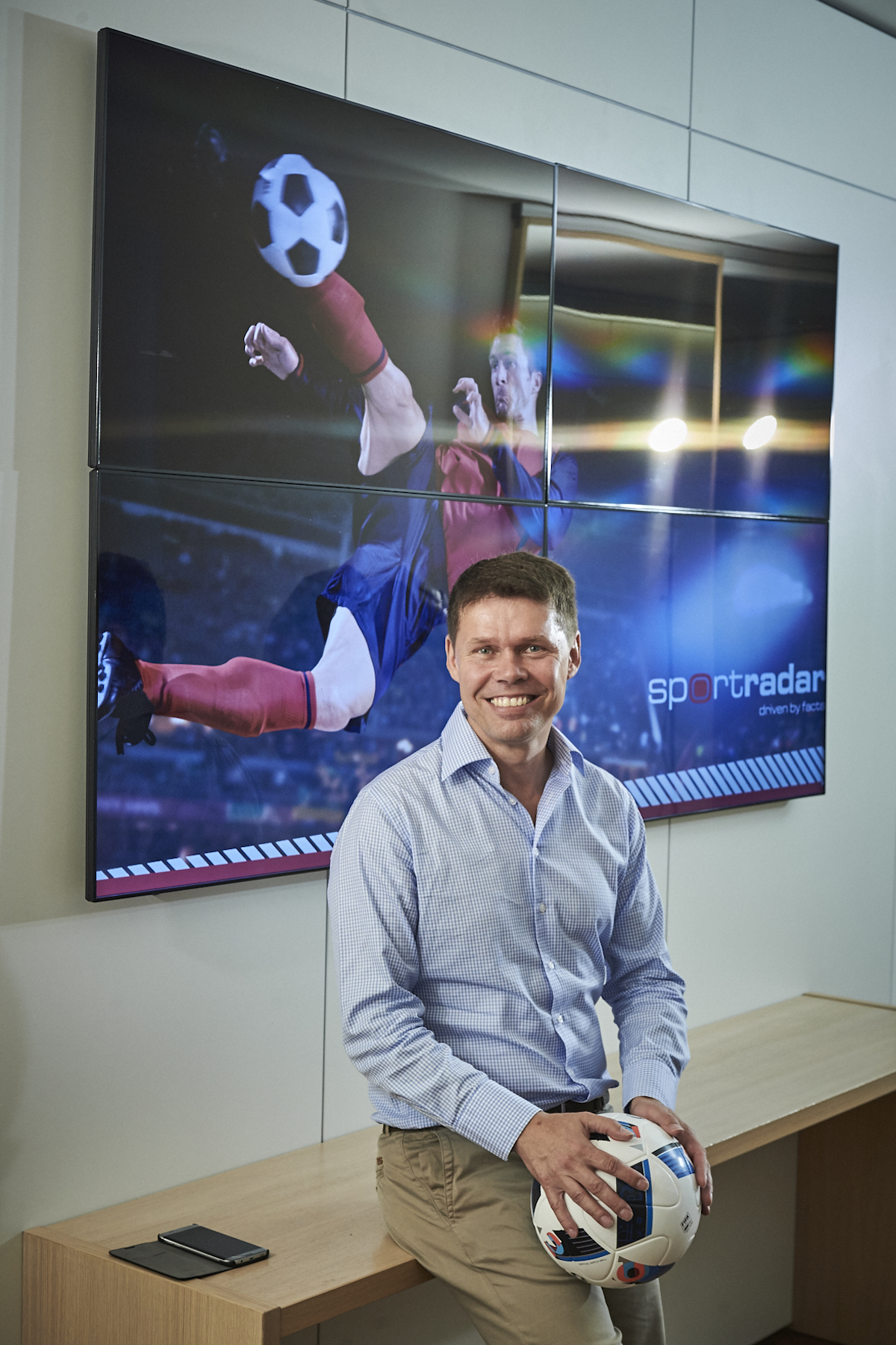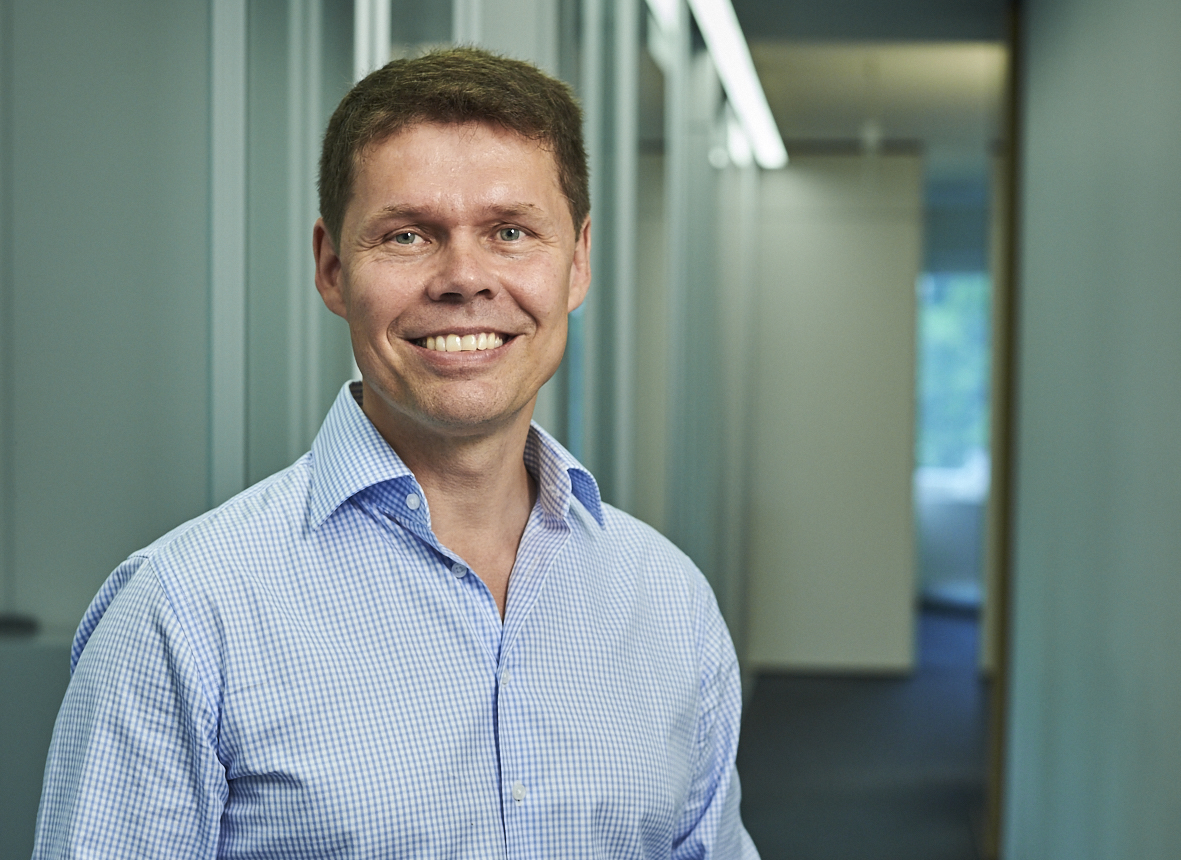Carsten Koerl is not someone who finds it difficult to get up and go to work each day. The secret to his happiness? Passion. “I am blessed to have a passion for what I am doing,” the CEO and founder of Sportradar, says. “It’s not about the company size, how many employees you have, how profitable it is — to me, it’s more about the passion I have for what I’m doing. I run a company, I am in sport, I am in technology, and we’re global; it’s a perfect fit for me.”
Carsten established Sportradar in 2001 after 2 young Norwegian entrepreneurs programmed software that enabled the extraction of market information from sports betting companies. Since then, the company has grown from a tech-focused start-up in a 20-square-metre office to the global leader in sports data and audiovisual content it is today. It has more than 20 offices across 15 countries, covering more than 300,000 sporting events each year.
“6 months after we launched, we had a battery of around 40 computers which I went around marking with different colours to identify what kind of database and application were running on which computer — we could chart our growth in the computers. It showed the business was growing and the demand was there. That was the starting point,” explains Carsten.
Bet & win
With strategic focus, Carsten has led all aspects of Sportradar’s business since its launch. Identifying demand and predicting technology trends as they relate to the business is all part and parcel of his role, and something that Carsten demonstrated with his previous company, Betandwin, too — a company (now Bwin) that he founded and led through one of the most successful public listings ever undertaken on the Vienna stock market.

At that time, Carsten’s Betandwin idea was so advanced that the entrepreneur struggled to get clients. “It was 1996, which was the very early days of the internet,” he recalls.
“We realised we had no clients because the sports betting agencies were uncertain if the internet was a sustainable channel at the time.”
I run a company, I am in sport, I am in technology, and we’re global; it’s the perfect fit for me.
That step into the managerial side was invaluable, says Carsten. “If you manage something, you gain a much better understanding of what kind of needs there are in the industry,” he says. “That was pre-Sportradar. It was during this time that I learned there was a need for the betting industry to get information in a transparent way.”
Sportradar is based on the idea of leveraging and understanding the power of sports data, a valuable and, in many cases, fundamental asset for its clients, who span sporting bodies, media companies and betting agencies. After creating that initial software for Sportradar, and from his past experiences, Carsten realised that “everything is driven by sports data and sports information, and if that information is not available, you need to collect it and validate it. We began to operate a highly specialised sports information agency with correspondents around the world called data journalists. Today we have about 6,000 data journalists covering 38 sports in almost 95 countries.”
Technicians in sports excellence
The high demand for what Sportradar uniquely offers to the market led to fast, synergistic growth, explains Carsten. The company expanded quickly, with offices in Switzerland and Germany, and most recently the US. “If you read books about corporate development, not one person will recommend you to build so many different offices in so many different places!” he says.

“There are many challenges with different characters and local laws; it’s quite a task to synchronise, but I believe it’s also the strength of our company. I would say Sportradar is driven by a young, passionate team of technicians in sports excellence. This is what unites us,” he says.
Operating a truly international company with numerous offices and maintaining a strong company culture is just another remarkable feat of the business. “Culture is most important,” says Carsten. “Our people need to have that company spirit and engagement.”
One way of achieving unity among Sportradar colleagues around the world is by running competitions between the offices, including events around arts or sports. As well as the standard office tools for communication, Carsten has a very personal approach to what is a global operation, believing that physically visiting offices is important.
“I travelled about 220 days in 2016. One of the main reasons for this is that I want to speak to our employees and transmit to them what I think, and to listen to them and simply spend time with them. I think that is working quite well.”
Ahead of the game
As a company with roots in technology, and clients in media, broadcasting and technologies, the digital transition is certainly something where Sportradar must stay one step ahead of the game. Its strong technological foresight and high-quality data service has led to contracts with the likes of the NBA and NFL and partnerships with Twitter, Google and Facebook. The NBAs and NBLs of the world want to know how they can improve their product in today’s digitally advanced world, explains Carsten; and they’ve already secured the older audience, so now they want to reach millennials.
“That is only possible if you package the data in an interesting way,” he says. “And how does it get interesting? You need to go on social, you need to use virtual reality, augmented reality, and an output channel — and this is what we enable.” Companies like Google and Facebook can bring data to life via their channels, says Carsten.
Sportradar is driven by a young, passionate team of technicians in sports excellence. This is what unites us.
So how does Carsten balance Sportradar’s existing strength with the flexibility needed to allow the company to forge exciting new paths when new technologies and opportunities arise? By predicting how the market will develop, he says. “You somehow need to have a vision — to see how it’s developing, what drives the market. There are underlying megatrends which we simply must adapt to, such as the Internet of Things.
“You need to look into trends and check that you identify with what your client will need in the future. For example, many clubs and federations might be confronted by customers requesting virtual reality at their playing grounds and stadiums,” says Carsten.
An exponential world
And the technological advances certainly sound exciting, with talk of 3D rendering, sports players wearing tech that allows viewers to see parameters such as their energy levels, and virtual reality capabilities that enable watching sports matches ‘with friends’ while on opposite sides of the world.
“It all sounds a bit like fantasy but the CPU power is there, and the video and data information is there; it just needs to come together and gain traction. “Our organisation is built in such a way that our people have a passion for capitalising on opportunities. They understand that this worldwide market is providing these opportunities, and they understand that technology is pushing this. We are good at adapting and finding our way. We need to innovate and be open to adapt on a daily basis; we need to learn on a daily basis; and we need to change our structure frequently.”
This frenetic-sounding pace at which Carsten and Sportradar are moving makes sense in the world we live in. As he points out, we are living in an exponential world: technological capabilities are doubling, storage is quadrupling, and competitors can copy others in a matter of hours. “A good friend of mine said, ‘The one who grows linear in an exponential world falls exponentially behind’,” says Carsten.
“This is driving the business. We are like a sailing ship — the wind is blowing heavily into the sail but we are not struggling; we are moving very fast and the wind is carrying us forward. This is in our DNA. The company grows 30% to 40% every year, and I try to keep that growth speed. The market is there and the underlying growth is there. You need to be very flexible, and if you’re not static, you’re ready for innovation — and this is what is driving us.”



